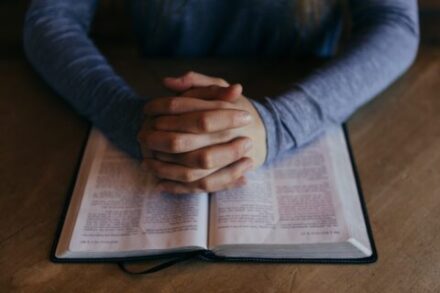I’ve been reorganizing. As I did, I came across a good-bye letter from me to the pastor from March 2008. I didn’t actually leave until December 2009. I don’t remember what prompted me to write the letter; I’m fairly certain it had to do with two younger women falsely accusing me of some really weird things–so weird that when he started rebuking me I had no idea who even could have come up with such ludicrous statements. I’m pretty sure from the way the letter is worded that I figured I’d be kicked out, not that I was planning to just walk out. I also know that I should have left even before that.
Reading the note – a note that was mainly thanks and praise of them for all the “good things” like outreach and being used so much and being “allowed” to help – brought back a lot of memories. Memories of such fear and anxiety that I would physically start shaking so hard I could barely stand if I so much as got a text from the pastor or his wife. Memories of my stomach in knots and me afraid to run to the bathroom because he’d be angrier if he’d called me to stand in his two hour after service line of people he wanted to talk to or who wanted to talk to him and stuck his head out and saw that I wasn’t there, or saw me leave service for any reason, or… Afraid to go to the church for anything, never knowing when I’d get ‘called in’ or what I’d be in trouble for next, and afraid not to go because missing anything meant a step toward hell, no matter what the reason for missing.
People who left had things said. They were garbage, trash. They weren’t worth talking to and couldn’t be trusted. Listening to them or spending any time with them was risking your own soul, because as the pastor said, “be careful who you fellowship!” If you associated with them, you were probably one of them. And if you were one of them, you were backslid, too, and had left God and fallen away ‘like a dog returned to his vomit.’
And so I was afraid to leave, but I was afraid to stay. I realize now that the pastor was exerting a tremendous amount of control with his after service lines that you had to stay in until 1:00 am if he told you to be there, even on a work night, and his rebukes based on false accusations — rebukes without giving the accused an opportunity to explain, harsh rebukes that didn’t even have to do with the original accusations in many cases, rebukes in which the condemned weren’t to say anything or they’d be talking back to the man of God, which was simply not done. I realized even then that the amount of terror that I was feeling and the physical toll it was taking were harmful. I’d been warned by doctors that stress was elevating bad things and manifesting physically. I didn’t know at the time how close I may have been to an emotional breakdown.
Leaving was costly. Staying was costlier. I stayed because I believed in God. I stayed until I barely had any faith left. They taught that those who left also left God, but I would have struggled less with faith in God if I’d abandoned faith in them a little sooner, before they’d entwined ideas of God with their sickness quite so much. I was afraid to leave, and after I wrote the letter I found tonight, it would still be another 21 months before I left. People there at the time may have wondered why I left. I look back, eight years later, and wonder why I ever stayed as long as I did. If I’d know then what I know now, I’m not sure if I’d have been more or less afraid of leaving. But looking back now, my regret is that I ever went there to start with… and that I didn’t leave sooner.
*Fear and anxiety like I describe here, and the kind of control I experienced should never be a part of any ‘church’. If you are in an organization and you are afraid to leave but afraid to stay, seek outside help. And somehow, leave. God will be on the other side of that door, no matter what they say.
********
Shop at our Amazon store! As an Amazon Influencer, this website earns from qualifying purchases.




